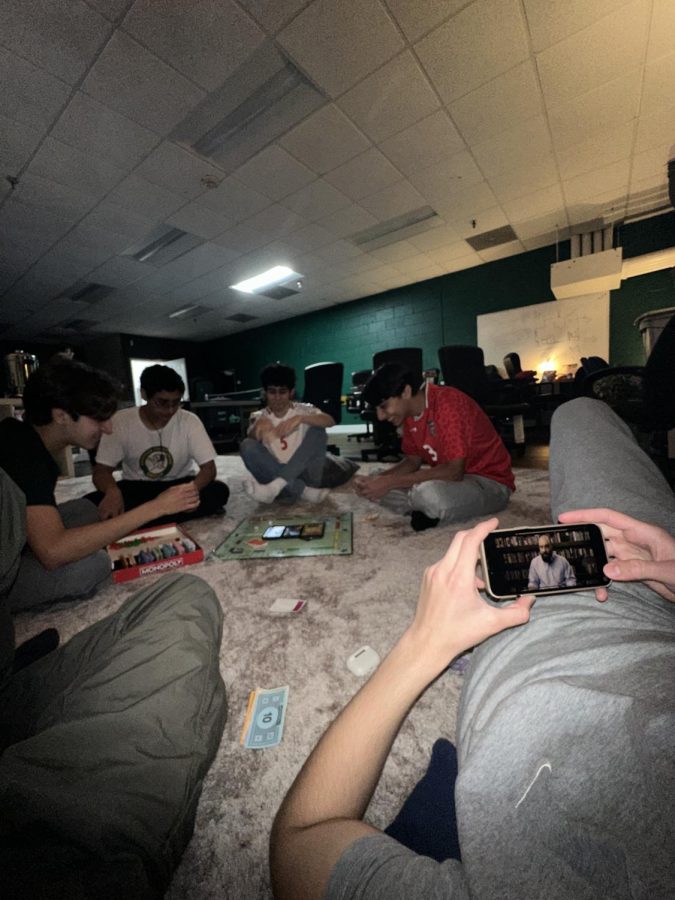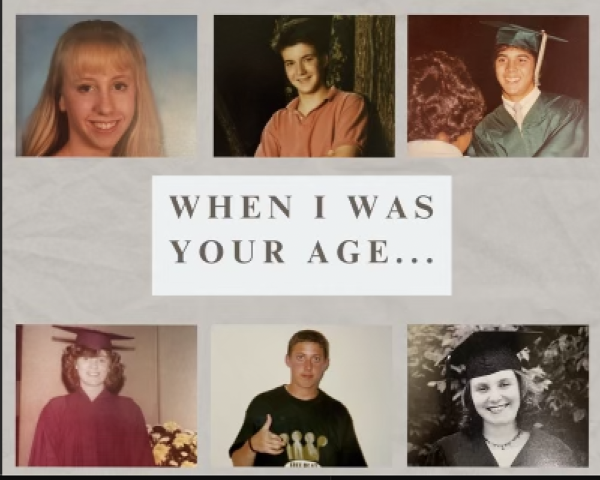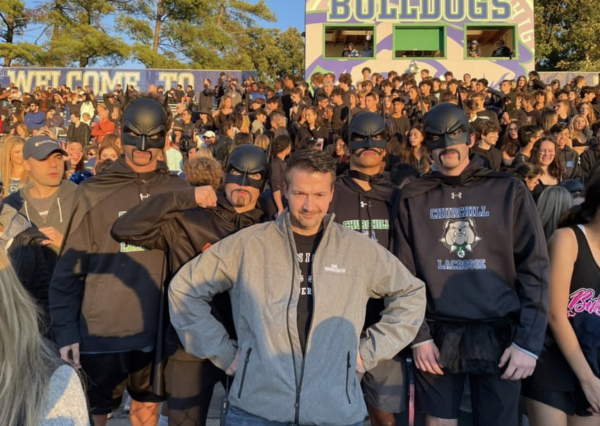Balancing school and spirituality: how students observe Ramadan
WCHS students and friends play Monopoly, play ping-pong and even study for their APs at the Islamic Education Center to pass time during the last 10 nights of Ramadan.
May 1, 2023
2,007,832,686. This number represents the approximate population of Muslims worldwide, which makes up 25 percent of the world’s total population of over eight billion. In other words, a quarter of the world celebrates the Islamic month of Ramadan every year, yet non-Muslims do not know much about it.
WCHS students should know that Ramadan – the ninth and holiest month of the Islamic lunar calendar – is the month of remembrance and celebration of the revelation of the Holy Qur’an to the Prophet Muhammad (peace be upon him). The Qur’an was revealed to the prophet by the angel Jibra’eel – also known as Gabriel – over 1400 years ago in the year 610 AD. Since the Islamic calendar is a lunar calendar, the timing of the month changes every year based on the moon, lasting between 29 and 30 days.
“Ramadan is simply a period of complete devotion to becoming closer to God, while also building self-discipline and finding empathy for those in poverty,” WCHS junior Hanan Ali, said. “For my family, [during Ramadan], we are the most devoted to the religion and we feel most close to Allah, which is Arabic for God. Throughout the month, we spent a lot of time together praying and reading the Qur’an, and after iftar, we watched documentaries explaining Islamic history.”
During this month, fasting is mandatory and all acts of kindness – especially charity – are heavily encouraged. A common misconception for people who first learn about Ramadan is that Muslims fast for the entire month, but in reality, the fast only lasts as long as the sun is out; Muslims eat a meal early in the day before dawn during “suhoor” and break their fast after nightfall during “iftar.” Due to this nature, suhoor tends to be one of the hardest parts of the day, while iftar tends to be the easiest.
“The best part of the day was [honestly] iftar,” Ali said. “I just enjoyed being able to break my fast with dates and water with my family.”
Muslims are very used to it, but the conditions of fasting in Ramadan are a bit foreign to the Western world: during the day, one must abstain from not only food but also water. By default, in Islam, the use of drugs and alcohol is prohibited. Despite this, the sentiment of prohibition is heavily emphasized during Ramadan, as one will break their fast if they fail to abstain from certain forbidden activities. This failure will ultimately result in some form of punishment like a specific number of fasts that must be made up later on or a specific amount of charity that must be produced. Although this type of fast may seem difficult to endure for hours on end, some WCHS students find it quite doable.
“The first couple days, fasting was definitely a struggle because you would lose focus easily while trying to study or focus in class, but that goes away after a few days,” WCHS sophomore Furkan Kavuncu said. “My extracurricular sports were definitely impacted because I couldn’t just go running as fast and as much as I wanted because then I would burn through my energy quickly – I had to sit out often. Either way, I was motivated to continue because I was doing it all for Allah. Besides, I would only get hungry or thirsty in the afternoon – and that was close enough to iftar anyways.”
Kavuncu was not the only one who found it easy to adjust. Other students found ways to embrace the struggle while simultaneously passing the limited days efficiently as well.
“I shifted my studies and homework for after iftar because I didn’t have very good focus at around six or seven [in the evening],” WCHS sophomore and junior varsity basketball player Noura Taheri said. “Unfortunately, I couldn’t really play basketball as much because of a lack of energy and just because of dehydration; if I did want to play though, I could play after iftar.”
The celebration of Ramadan might seem exhausting to members in and out of the religion, but that rarely alters the spiritual focus that is a priority for students – along with Muslim families all across the globe – who all take this month very seriously.
“For me, Ramadan is a time where I can focus on myself and not anyone else,” Taheri said. “My friends who fast get me when I say that it refreshes you and your soul and allows you to self-reflect and to connect personally with Allah.”
There is clearly no time to waste, as Muslims believe that this month is the best time of the year to work on themselves, stop bad habits and genuinely become a better person. Some of the most vital times during Ramadan that all Muslims specifically take advantage of are the Nights of Power. It is said that the Qur’an was revealed to the prophet during one of the last 10 nights, which is known as Laylatul Qadr, or the Night of Power. However, the Night of Power has not been explicitly revealed to Muslims – rather three nights have been marked as possible dates – so Muslims pray for all three nights. It is during these nights when communities come together even closer, and all Muslims feel a sense of heightened spirituality.
“Laylatul Qadr is immensely important to us,” WCHS sophomore Maysam Ghandi said. “On the nights of Qadr, I feel closer to my faith than ever. The experience of staying up late at the mosque to pray and participate in various spiritual activities with friends is unmatched.”
Ghandi and other students alike also believe that it would be helpful if WCHS administrators could acknowledge the month and its importance by somehow facilitating the Muslim community’s Ramadan experience at the school.
“I think that WCHS can support Muslim students in the future by allowing them to turn in assignments late or to take assessments late with no grade penalty, as one of the hardest parts of school this Ramadan was taking tests – especially in the afternoon,” Ghandi said. “By the afternoon, students who are fasting are drained of energy and focus, and taking a test is the last thing they want to do.”
Overall, Ramadan is one month in the year many students undergo that not only makes them struggle but also allows them to become stronger and to withstand all the distractions of the free world. Those who truly cherish Ramadan never fail to leave the month feeling rejuvenated. When fasting, community, spirituality and self-improvement all come full circle, Ramadan leaves Muslim students with new outlooks on life that can never be reproduced the same way. When it is time for Eid-al-Fitr, the end-of-the-month celebration, the only regret people are left with is the feeling of not being more grateful for Ramadan before its completion.
“I would like all non-Muslims to know that fasting and partaking in Ramadan is a sincerely unique, spiritual experience that is not only about struggling and coping with hunger and thirst,” Ghandi said. “Ramadan also teaches you to be disciplined and mindful, and it shows you how you don’t depend on your bodily desires as much as you may think you do. No matter what your religion or background is, I think everyone should challenge themselves to fast at least once in their lives, even if it is just for one day: you’ll understand where I’m coming from once you’ve done it yourself.”












